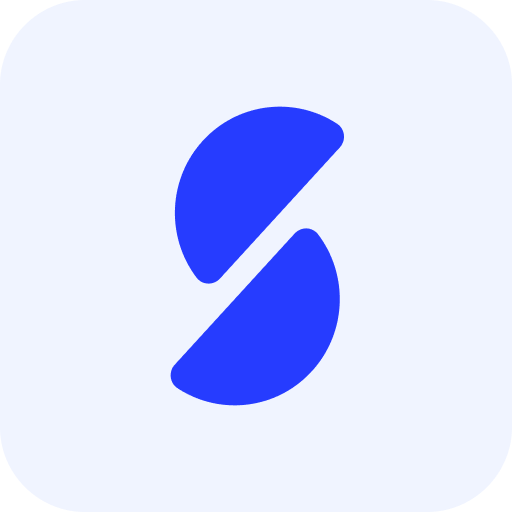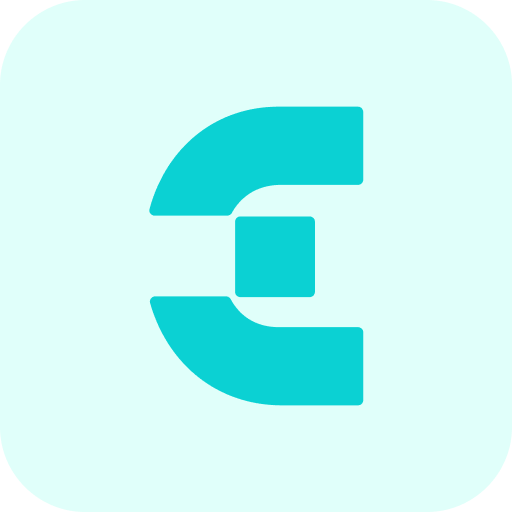New release Curriculum 10.22

Improvements and bug fixes
USABILITY, ADMINISTRATION - The configuration of the qualification rule should be easy to use - CUR-806
This release introduces the first iteration of the qualification builder, designed to assist users in configuring module-groups and modules necessary for obtaining a qualification. The initial implementation starts with configuring qualifications from the actual qualification itself, with the basic information entered and qualification requirements set during the qualification definition (create / maintain) process. Feedback will drive future adjustments.
The qualification builder utilizes the new link-builder page type for configuration. This page type allows users to select the study and link type relevant to the qualification.

The page setup is similar to other pages but includes an additional setting:
- Category - defines the used Link-type category (Administration / Link types). It is recommended to create a new Link type category with only one link type.
On the new link-builder page, the first step is to select the study for which the qualification is configured. The study filter displays only those studies associated with the qualification through the linked specification.
In the second step, you choose a link type. If a new Link category has been created with only one type, it will be automatically selected.
In the simple view, only groups can be chosen, simplifying the configuration process for most qualifications. For instance, a certificate can be obtained by completing just year 1, or a diploma by completing year 1 and the Math specialization in year 2.

By clicking on the Simple button, you can switch to the advanced mode, which allows the selection of both module-groups and modules. The advanced mode provides a detailed configuration of a qualification, for example, obtaining a certificate that requires year 1 and specific modules from year 2. Because this option is less frequently used, both a simple and an advanced mode are available.

The 'Show selected only' button displays only the selected groups and modules in a read-only view, facilitating quick verification of the configured qualification requirements.

ADMINISTRATION - Qualification can now belong to a a specification - CUR-823
A new feature allows setting an 'owner' specification for a qualification. This makes the qualification belong to that specification, automatically suggesting it in underlying studies and inheriting any access rights from the specification.
The API has also been extended with:
qualification.specification (0..1)specification.qualifications (0..*)
This enhancement simplifies the management and association of qualifications within the system.
BUG - Preset field value not respected on create - CUR-540
An issue was reported where the field configured to automatically set with a default value on Empty was not behaving as expected. The problem no longer existed for newly created information, but some existing data still showed incorrect behavior. A previous release addressed the issue for new information, but the problem persisted for existing data due to how it was stored. We rolled out a fix for relevant customers to correct the existing data (set to null versus empty string), resolving the issue for historical data as well.
USABILITY- Button option display used in reports should show them as read-only - CUR-789
In case a report (rows page) consists of a page (form) showing fields with a display type set to button option, the button option was not shown in read-only mode. This means the report offered the option to toggle the button, and in some cases even force a save-operation. The save was not executed and an error was given 'not allowed'. This has been solved, so in a report the button option display type is shown in read-only mode.
ADMINISTRATOR, USABILITY - The days used in the availability form should be configurable - CUR-529
The days offered to staff members to provide their availability were previously limited to weekdays (Monday - Friday). A change has been made to enable configuration of the supported days via the Element Weekdays.
The weekdays to be supported can now be defined.

The configuration above will show 4 days in the availability form.

If no weekdays are defined, the behavior will fall back to the standard Monday-Friday support.
REPORTING - Extend the activity report with an indicator if the activity is offered - CUR-753
The activity report shows all activities within the requested scope, such as all activities in a specific study. On the module it was clearly indicated if an activity was deleted (no longer offered), but the activity report did not differentiate between offered and non-offered activities. An additional selectable field (offered) has been added to the activity report to indicate if an activity is still offered or not.
USABILITY, REPORTING - The activity-report page is extended to support activity reports for business events - CUR-762
As part of improving support for professional education a number of changes has been made, amongst others the option to define ad-hoc periods and detail the activities provided during that ad-hoc period. We noticed that part of these professional educations where one or two day programs with all activities planned and for each activity information like name, start and end time, activity host/lecturer, etc.
To support a report that shows in one overview the entire schedule for these 'short courses' the activity-report has been extended with the following options:
- Enable selection of all defined fields on activity
- Enable selection of the staff member(s) assigned to the activity
- Automatically add a field based on date and time in case the standard fields preferred Date and preferred Time are offered
- Automatic sorting on the auto generated date-time field
These changes result in a comprehensive report displaying all activities and relevant information, optionally sorted by date-time, providing a clear overview of the entire program. The activity-report, being a standard reporting page, also includes standard functionalities:
- Customize report: Configure the fields that are shown and save as a personal template
- Template: select a defined template and manage existing templates
- Search: offer a column-based search to filter on for instance Status
- Download: export the report to Excel (or CSV)
USABILITY, ADMINISTRATION - Method should enable configuration of different typed activity series - CUR-792
Previously, defining a Method required specifying a method type that applied to all underlying activities. For instance, a Method of type Lecture meant all activities were lectures, and a Method of type Teaching meant all activities were teaching. This restriction prevented creating mixed-type activity series, such as a combination of lectures and workgroups under the same Method. Similarly, for assessments, a cumulative test couldn't consist of mixed types like Oral and Digital tests.
This release introduces flexibility by allowing differentiation between the type defined on the Method and the type defined on the activity series. Now, a Method can contain different activity series types, such as a mix of lectures and workgroups or various assessment types within the same Method.
Not all users may need this flexibility, so a new configuration option has been added on the activity-list page to enable or disable this feature.

BUG - Defined weeks in a period are not always shown defining activities- CUR-793
In case the academic calendar was set up in a way that the start of period was not defined on a Monday, but on a Wednesday, the selection of weeks 'outside the period' were calculated and displayed incorrectly. This was caused by the logic to translate the set date to calendar weeks, that uses the Monday date for a week as the reference for start.
A fix has been applied to extend the calculation of the calendar weeks / week in period to support for weeks not starting on Monday and ending on Sunday. This means that the weeks outside the period are now calculated and shown correctly. The side-effect is that it might be that a week is shown twice, once in the actual period and once in the previous or next period, since the week belongs to both periods.
Advise: Define the start day of a period in the calendar on a Monday and the end date on Sunday.
USABILITY - Person availability report should also work on a non-period based process setup - CUR-782
The person availability report previously only showed information if the process was restricted to a specific period. This has been changed to also display the provided personal availability even when the process is not bound to any period.
USABILITY, ADMINISTRATION - Option added to report on self-defined objects (items) - CUR-764
Self-defined objects, also known as items, are used to define custom objects in Curriculum. These objects can be configured on each of the standard objects (specification, study, module, etc.), and allow the configuration of custom fields on that object.
A simple example is a Task list, which may offer the following fields:
- Title
- Description
- Solution
- Status
- Start date
- End date
The user can now add tasks to a task list, as shown in the example below.

Previously, such a task list would only show the information available in the context of the object it was defined for. For example, if a task list was defined on the module "Introduction to Math," the list would only be available in that module.
To enable reporting on these self-defined objects and all their instances, a new report (page: item-report) has been added that supports reporting in a broader context.

The page configuration is just like any other page with the following additional setting:
- Type code - Defines the item type the report is used for. In the example, this would be taskList.
The page can be used in workflows or added as a tab to the tabular information as shown below.

The new item-report page offers the same functionality as other report pages:
- Customize Report: Configure the fields that are shown and save as a personal template.
- Template: Select a defined template and manage existing templates.
- Search: Offer a column-based search to filter on, for instance, Status.
- Download: Export the report to Excel (or CSV).
USABILITY - Improved fallback mechanism and immediate update functionality for entity titles - CUR-778
To subtly enhance clarity and responsiveness in parts of the user interface, we've refined the fallback mechanism for displaying entity titles and implemented immediate update functionality. Now, entity names display logically and update in real-time when entities are saved or when the application language is switched. The updated fallback sequence for entity names, used more selectively, arranges the first available non-empty name in the following order: Name in current language, Name in other language (new fallback), Code (new fallback), External ID (new fallback), and Entity type.
INTEGRATION - Calendar endpoint now also includes Year - CUR-824
The Calendar endpoint (api/import/v2/calendar) has been updated to include the calendar year (id and code) in the response body, providing additional context and improving data accuracy.
INTEGRATION - Extend API support for Team information - CUR-595
The API for object-relation management has been extended to support retrieving and maintaining not only the persons assigned to a relation/role but also assigned teams.
The example below shows the role Lecturer filled with a person (John Doe) and a 'teacher team' with the code AWE.

INTEGRATION - Extend API support to retrieve Team information - CUR-595
The API is extended with a new Team endpoint that enables retrieving the members of a specific team. To retrieve the members of the AWE team shown in the example above, use the endpoint:
<your_system_url>/api/import/v2/team/AWE
This endpoint will return the members of the specified team, facilitating easier integration and management of team-related data.
Security improvements
SECURITY - OWASP
During this Sprint / Release no vulnerabilities where reported.
Detailed information can be found at the central database of vulnerabilities.
Customer unique training






